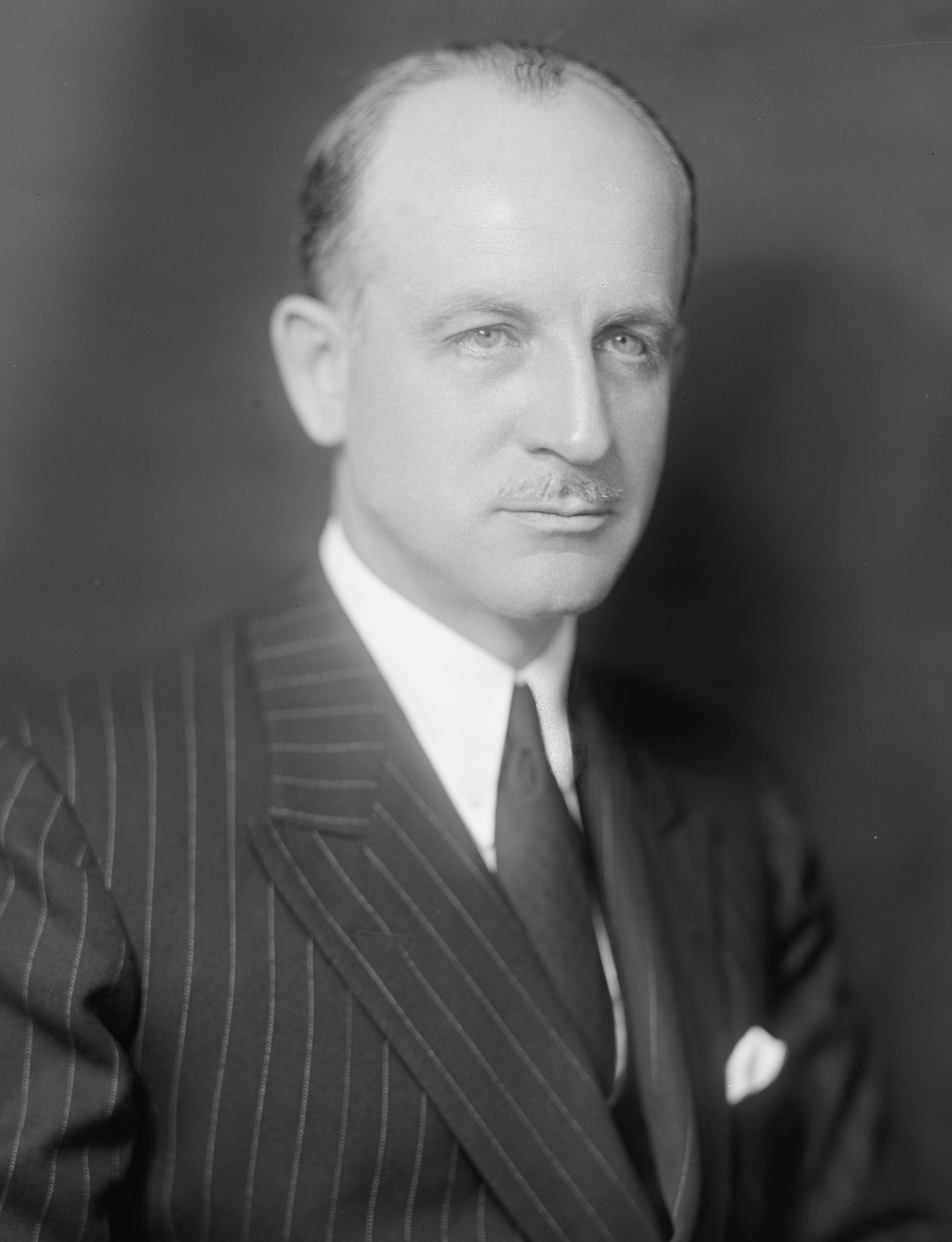Sumner Welles
 Benjamin Sumner Welles (October 14, 1892September 24, 1961) was an American government official and diplomat. He was a major foreign policy adviser to President Franklin D. Roosevelt and served as Under Secretary of State from 1936 to 1943, during Roosevelt's presidency.
Benjamin Sumner Welles (October 14, 1892September 24, 1961) was an American government official and diplomat. He was a major foreign policy adviser to President Franklin D. Roosevelt and served as Under Secretary of State from 1936 to 1943, during Roosevelt's presidency.Born in New York City to a wealthy, well-connected political family, Welles graduated from Harvard College in 1914. He entered the Foreign Service at the advice of Franklin Roosevelt, who was a family friend. Welles was excited by Woodrow Wilson's ideas about how American principles could reorder the international system based on liberal democracy, free-trade capitalism, international law, a league of nations, and an end to colonialism.
Welles specialized in Latin American diplomatic affairs and served several posts in Washington and in the field. President Calvin Coolidge distrusted Welles because of his divorce, and dismissed him from the foreign service. Welles left public service for some years, and wrote a book on the history of the Dominican Republic.
When Roosevelt was elected president in 1932, he put Welles in charge of Latin American affairs as Assistant Secretary of State for Latin American Affairs. Welles became heavily involved in negotiations that removed Cuban president Gerardo Machado from power and replaced him with rival Carlos Manuel de Céspedes y Quesada. He was later promoted to Under Secretary of State, in which role he continued to be active in Latin American issues, but also expanded into European affairs as World War II began in Europe in 1939. In 1940, he issued the Welles Declaration which condemned Soviet occupation of the Baltic states and proved to be a minor point of contention among the Soviets and their Western allies once the U.S. entered the war in 1941. Welles used American power and his senior position to intrude into the domestic affairs of other countries, especially choosing leaders who supported American policies. After the fall of France, he downgraded French affairs because they no longer were a major power. Roosevelt relied on Welles much more than on the official Secretary of State, Cordell Hull, who became the enemy of Welles.
Welles was forced out of government service by Secretary Hull after his enemies began to spread word of a 1943 incident in which he had propositioned two male railroad porters for sex. Returning to private life, he continued to write books on foreign relations and became an advisor to media organizations. He was a target of the House Un-American Activities Committee during the post-war "red scare", though he was never formally sanctioned. He died in New Jersey in 1961, survived by his third wife and two children from his first marriage. Provided by Wikipedia
-
1by Welles, Sumner, 1892-1961
Published 1935Washington : U.S. G.P.O., 1935.1 online resource (16 p.)LLMC Digital
Online Resource -
2by Welles, Sumner, 1892-1961
Published 1935Washington : U.S. G.P.O., 1935.1 online resource (15 p.)LLMC Digital
Online Resource -
3by Welles, Sumner, 1892-1961
Published 1935Washington : U.S. G.P.O., 1935.1 online resource (16 p.)LLMC Digital
Online Resource -
4by Welles, Sumner, 1892-1961
Published 1935Washington : U.S. G.P.O., 1935.1 online resource (7 p.)LLMC Digital
Online Resource -
5by Welles, Sumner, 1892-1961
Published 1937Washington, D.C. : U.S. G.P.O. ; For sale by the Supt. of Docs., U.S. G.P.O., 1937.1 online resource (6 p.)LLMC Digital
Online Resource -
6by Welles, Sumner, 1892-1961
Published 1934Washington : U.S. G.P.O., 1934.1 online resource (16 p.)LLMC Digital
Online Resource -
7by Welles, Sumner, 1892-1961
Published 1935Washington : U.S. G.P.O., 1935.1 online resource (18 p.)LLMC Digital
Online Resource -
8by Welles, Sumner, 1892-1961
Published 1936Washington : U.S. G.P.O., 1936.1 online resource (11 p.)LLMC Digital
Online Resource

